
Book a Consultation
Thank you!
Your form has been sent successfully.

Non-small cell lung cancer (NSCLC) accounts for about 80–85% of all lung cancers. There are two main categories of lung cancer: small cell and non-small cell.
Small cell lung cancer (SCLC) typically begins near the center of the chest and often grows rapidly. Non-small cell lung cancer develops in cells lining the lungs and generally grows more slowly. It may originate in the airways, such as the bronchi, bronchioles, or alveoli.
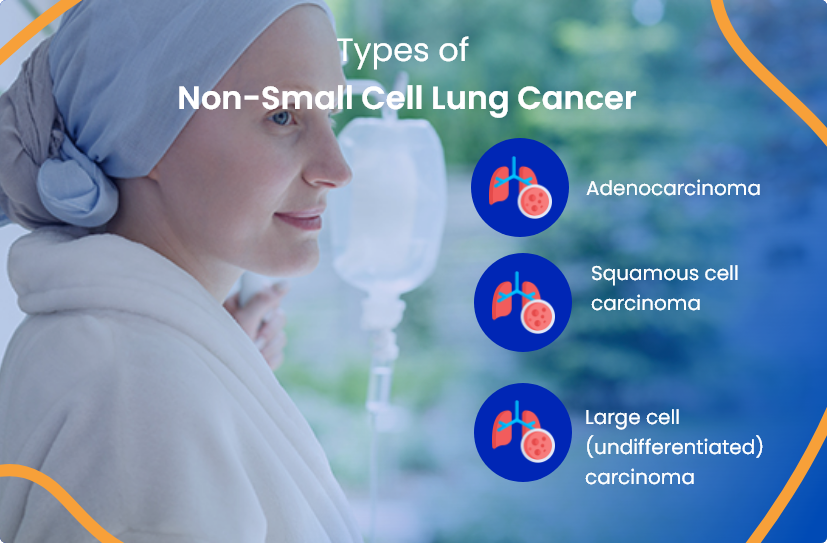
Adenocarcinoma is the most common non-small cell lung cancer. It develops in epithelial cells lining the outer side of the lungs, which secrete mucus-like substances.
Squamous cell carcinoma, meanwhile, occurs in flat, squamous cells that line the lungs' airways. It is usually found in the central part of the lungs.
Large cell (undifferentiated) carcinoma is a rare and aggressive type of lung carcinoma that can occur in any part of the lungs.
Symptoms vary based on the tumor’s size and location; tell your doctor if you notice any of the signs below. New or worsening symptoms deserve prompt evaluation.
Persistent cough or hoarseness
Shortness of breath or chest pain
Coughing up blood
Unintended weight loss, loss of appetite, or tiredness
The following tests and procedures may be recommended, depending on your symptoms, age, and general health:
Imaging: This helps locate and measure the tumor. Your team may use a chest X-ray, CT, MRI, or PET-CT to map what is happening.
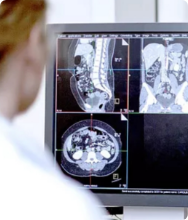
Biopsy: This confirms the diagnosis by studying a small tissue or cell sample under a microscope. Depending on the location, this can be done with a needle, through a scope, or with surgery.
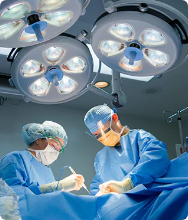
Bronchoscopy: This test uses a thin, flexible camera through the nose or mouth to examine your airways; numbing medicine and sedation keep you comfortable.
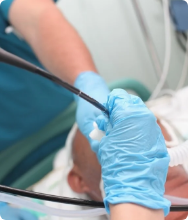
Thoracentesis: This removes fluid around the lung to check for cancer cells.
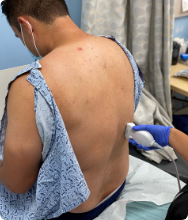
Sputum cytology: This examines early-morning mucus for several days.
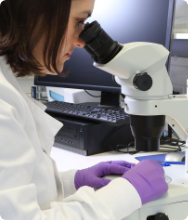
Biomarker tests: These look for genes and proteins that may guide therapy choices.
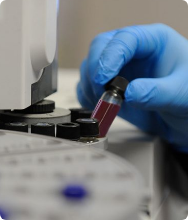
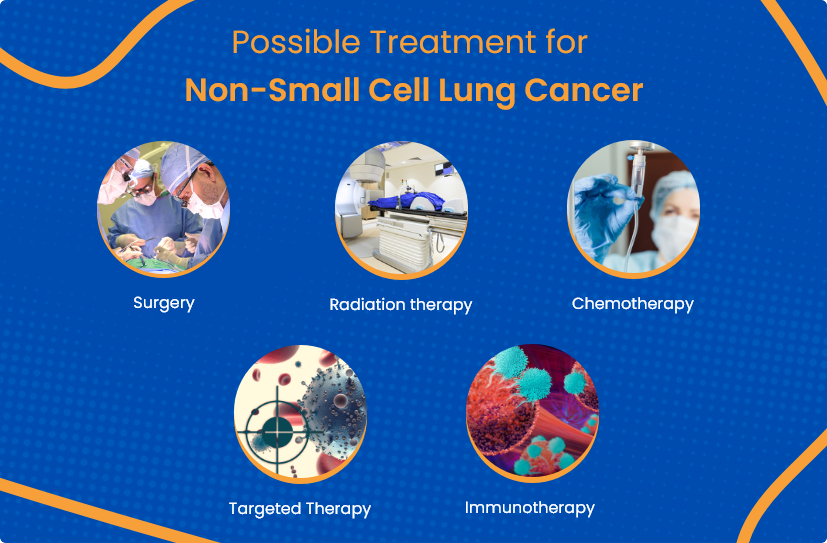
Treatment for NSCLC depends on the cancer type, stage, and your overall health.
Surgery aims to remove the tumor with clear margins; the extent varies by size and location.
Radiation therapy uses high-energy beams to treat cancer. Modern planning, such as IMRT, focuses the dose on the tumor while helping to spare nearby healthy tissue.
Chemotherapy travels through the bloodstream to treat cancer cells throughout the body.
Targeted therapy acts on specific cancer signals.
Immunotherapy helps your immune system find and attack cancer cells.
The cancer specialists at ACTC in Florida offer outstanding patient care by prescribing personalized and evidence-based treatment plans tailored to individual patients' needs.
We provide a supportive environment focused on the physical and emotional well-being of patients throughout their cancer journey.
Our expert providers at ACTC include:
Dr. Aaron Denson – MD, Hematology & Oncology
Dr. D. Alan Kerr II – MD, Ph.D., Hematology/Medical Oncology
Dr. Peter Zavitsanos – MD, Radiation Oncologist
At ACTC in Florida, our cancer specialists are backed up by qualified clinical staff with over two decades of experience. We guide you through diagnosis, staging, treatment, and long-term follow-up in one convenient location.
Call 352-345-4565 or book an appointment.

If you or a loved one has been diagnosed with non-small cell lung cancer, a detailed discussion with your primary physician will help you understand your condition better. Your primary care doctor can then refer you to an advanced specialty center, such as ACTC in Florida.
As one of Florida's best cancer centers, we understand how a cancer diagnosis and therapy impact a person's physical and emotional well-being. Therefore, we work hard to make patients and their families feel secure. We understand how imperative it is for you and your loved one to make informed choices and play an active part in your medical care. We at ACTC strive to support you at every step of diagnosis, staging, treatment, and long-term follow-up in one convenient location. Our cancer specialists are backed up by qualified clinical staff with over two decades of experience and a reputation for providing personalized non-small cell lung cancer treatment.
Schedule a consultation by calling
 352-345-4565
352-345-4565
Small cell lung cancer often starts near the center of the chest and tends to spread faster. NSCLC develops in cells that line the lungs and generally grows more slowly than small cell lung cancer.
Smoking is the leading cause of NSCLC, but other risks include exposure to radon gas, certain workplace toxins (such as asbestos or diesel fumes), and genetic predisposition. HIV is also associated with a higher risk. Alcohol use and most viruses have no confirmed link.
Many people with early NSCLC have no symptoms. If present, the first signs may be a persistent cough, mild chest pain, or trouble breathing. Symptoms like coughing up blood often appear later.
Non-small cell lung cancer is a slow-growing tumor with a better prognosis than small cell lung cancer. However, chances of recovery also depend on the type and stage of the condition, the patient's general health and age, or if the cancer has recurred.
Schedule a consultation by calling
 352-345-4565
352-345-4565